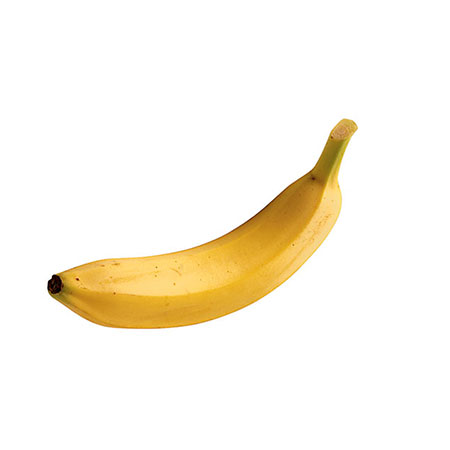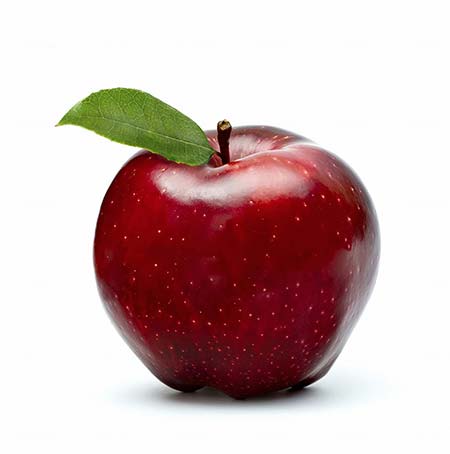father
PARENT a male parent
پدر، بابا، والد
His father was killed in the war.
پدر او در جنگ کشته شد.
PARENT a male parent
پدر، بابا، والد
His father was killed in the war.
پدر او در جنگ کشته شد.
Oxford Essential Dictionary
father
noun
a man who has a child:
Where do your mother and father live?
Look at dad and daddy.
Longman Dictionary of Contemporary English
father
I. fa‧ther1 S1 W1 /ˈfɑːðə $ -ər/ noun [countable]
[Language: Old English; Origin: fæder]
1. PARENT a male parent:
Ask your father to help you.
Andrew was very excited about becoming a father.
He’s been like a father to me.
a father of two/three/four etc (=a man with two, three etc children)
The driver, a father of four, escaped uninjured.
Steve recently became the proud father of a 7lb 12oz baby girl.
2. PRIEST Father a priest, especially in the Roman Catholic Church:
I have sinned, Father.
Father Devlin ⇒ Holy Father
3. fathers [plural] people related to you who lived a long time ago SYN ancestors:
Our fathers were exiles from their native land. ⇒ forefather
4. GOD Father a way of talking to or talking about God, used in the Christian religion:
our Heavenly Father
5. the father of something the man who was responsible for starting something:
Freud is the father of psychoanalysis.
6. from father to son if property or skill passes from father to son, children receive it or learn it from their parents:
This is a district where old crafts are handed down from father to son.
7. like father like son used to say that a boy behaves like his father, especially when this behaviour is bad
8. a bit of how’s your father British English informal the act of having sex – used humorously
⇒ city fathers, founding father
• • •
THESAURUS
▪ father a male parent: My father’s a doctor. | He’s a father of three.
▪ dad informal used when talking to your father, or about someone's father: Can I borrow your car, Dad? | Her dad retired ten years ago. | My dad was in the army.
▪ daddy a name for father, which is used especially by young children or when you are talking to young children: Where’s your daddy? | Daddy, can I have a drink, please?
▪ pop American English informal (also pa old-fashioned) used when talking to your father, or about someone's father: I helped Pop fix the gate this morning. | Can I help, Pa? | He is in New York with his Pop's credit card, eating all the ice cream and pizza the city has to offer.
▪ papa old-fashioned informal used when talking to your father, or about someone's father: Papa had forbidden me to go. | She saw her papa 's face change at this news.
▪ sb’s old man informal someone's father – used when talking about him in a way that is not very respectful: His old man wouldn’t let him use the car.
▪ stepfather (also stepdad informal) a man who is married to your mother, who is not your father but often acts as your parent: Her stepfather is really nice.
II. father2 verb [transitive]
1. to become the father of a child by making a woman pregnant:
Hodgkins fathered seven children.
2. formal to start an important new idea or system:
Bevan fathered the concept of the National Health Service.
father something on somebody phrasal verb British English
formal to claim that someone is responsible for something when they are not:
A collection of Irish stories was fathered on him.
Oxford Advanced Learner's Dictionary
father
father [father fathers fathered fathering] noun, verb [ˈfɑːðə(r)] Click to play [ˈfɑːðər] Click to play
noun
1. a male parent of a child or an animal; a person who is acting as the father to a child
• Ben's a wonderful father.
• You've been like a father to me.
• Our new boss is a father of three (= he has three children).
• He was a wonderful father to both his natural and adopted children.
• (old-fashioned) Father, I cannot lie to you.
see also godfather, grandfather, stepfather
2. fathers plural (literary) a person's ancestors (= people who are related to you who lived in the past)
• the land of our fathers
see also forefathers
3. ~ (of sth) the first man to introduce a new way of thinking about sth or of doing sth
• Henry Moore is considered to be the father of modern British sculpture.
see also founding father
4. Father used by Christians to refer to God
• Father, forgive us.
• God the Father
5. Father (abbr. Fr) the title of a priest, especially in the Roman Catholic Church and the Orthodox Church
• Father Dominic
see also Holy Father
more at old enough to be sb's father/mother at old, the wish is father to the thought at wish n.
Word Origin:
Old English fæder, of Germanic origin; related to Dutch vader and German Vater, from an Indo-European root shared by Latin pater and Greek patēr.
Thesaurus:
father noun C
• Gary's a wonderful father.
parent • • stepfather • • guardian • |informal, especially spoken dad • • daddy • |especially AmE, informal folks •
a good/bad/caring/loving father/parent/dad
take after/inherit sth from your father/parents/dad/daddy
become a/sb's father/parent/stepfather/guardian/dad
Father or dad? In spoken English dad is much more frequent. It can sound formal to say my father.
Example Bank:
• Boland, a father of two, was arrested on charges of theft.
• Elena's brother was a surrogate father to her kids after her husband died.
• He followed in his father's footsteps and became a motor mechanic.
• He followed the footsteps of his famous father into the film industry.
• He had a domineering mother and a cold, distant father.
• He has an ailing father and two younger brothers to support.
• He has just become the proud father of a baby girl.
• He is very good with children and would make a devoted father.
• He paced like an expectant father.
• He succeeded his father as Professor of Botany.
• He was a wonderful father to her.
• He was both a bad husband and a bad father.
• I always thought of you as a second father.
• I buried my father, and mourned his death.
• I lost my father when I was nine.
• Jesse is now married and father to a young son.
• Meet your new father.
• Ryan has gone looking for his long-lost father.
• She followed her father into the legal profession.
• She inherited the urge to travel from her father.
• She kept the books that had belonged to her beloved father.
• Some of his students regard him as a father figure.
• The land passes on from father to son.
• The new father took his son into his arms.
• The two boys were like their mother in character, but Louise took after her father.
• Their musician father encouraged their love of music.
• Try your best to honor your father.
• a married father of two
• the grieving father of two children lost at sea
• Ben's a wonderful father.
• Our new boss is a father of three.
• You've been like a father to me.
Idioms: from father to son ▪ like father, like son
verb
1. ~ sb to become the father of a child by making a woman pregnant
• He claims to have fathered over 20 children.
2. ~ sth to create new ideas or a new way of doing sth
Verb forms:
Word Origin:
Old English fæder, of Germanic origin; related to Dutch vader and German Vater, from an Indo-European root shared by Latin pater and Greek patēr.
Cambridge Advanced Learner's Dictionary
Cambridge Advanced Learner's Dictionary - 4th Edition
father / ˈfɑː.ðə r / / -ðɚ / noun [ C ] (PARENT)
A1 a male parent:
My father took me to watch the football every Saturday.
The children's father came to collect them from school.
[ as form of address ] formal or old-fashioned Please may I go, Father?
father / ˈfɑː.ðə r / / -ðɚ / noun [ C ] (IN RELIGION)
( also Father , written abbreviation Fr ) (the title of) a Christian priest, especially a Roman Catholic or Orthodox priest:
Father O'Reilly
[ as form of address ] Are you giving a sermon, Father?
( also Father ) a name for the Christian God:
God the Father
Our Father, who art in heaven...
© Cambridge University Press 2013
Collins COBUILD Advanced Learner’s English Dictionary
father
/fɑ:ðə(r)/
(fathers, fathering, fathered)
Frequency: The word is one of the 700 most common words in English.
1.
Your father is your male parent. You can also call someone your father if he brings you up as if he was this man.
His father was a painter...
He would be a good father to my children.
...Mr Stoneman, a father of five.
N-FAMILY
2.
When a man fathers a child, he makes a woman pregnant and their child is born.
She claims Mark fathered her child...
He fathered at least three children by the wives of other men.
VERB: V n, V n by n
3.
The man who invented or started something is sometimes referred to as the father of that thing.
...Max Dupain, regarded as the father of modern photography.
N-COUNT: N of n
4.
In some Christian churches, priests are addressed or referred to as Father.
Merriam-Webster's Advanced Learner's Dictionary
1fa·ther /ˈfɑːðɚ/ noun, pl -thers [count]
1 : a male parent
• He became a father when he was 30.
• He's the father of three small children.
• He has been like a father to me.
• the foal's father
• He's a single father. [=a father who does not have a wife or partner]
✦The expression like father, like son means that a son is like his father in character, behavior, etc.
• “He's very stubborn.” “Well, like father, like son.” [=his father is also stubborn]
- see also birth father, grandfather, stepfather
2 : a man who is thought of as being like a father
• He was a father to me after my own father died.
3 Father : god 1
• heavenly Father
- see also our father
4 formal : a person who was in someone's family in past times : ancestor, forefather
- usually plural
• She inherited the land on which her fathers toiled.
• the faith of his fathers
5 : a man who invents or begins something - usually singular
• the father of modern science
• George Washington is the father of our country.
- see also founding father
6 old-fashioned : an older man who is one of the leaders of a city, town, etc. - usually plural
• Will the city fathers agree to it?
7 : a priest especially in the Roman Catholic Church or the Orthodox Church - used especially as a title or as a form of address
• Father Fitzgerald
• Good morning, Father.
- see also holy father
- fa·ther·hood /ˈfɑːðɚˌhʊd/ noun [noncount]
• a young man who didn't yet seem ready for fatherhood
- fa·ther·less /ˈfɑːðɚləs/ adj
• a fatherless child




